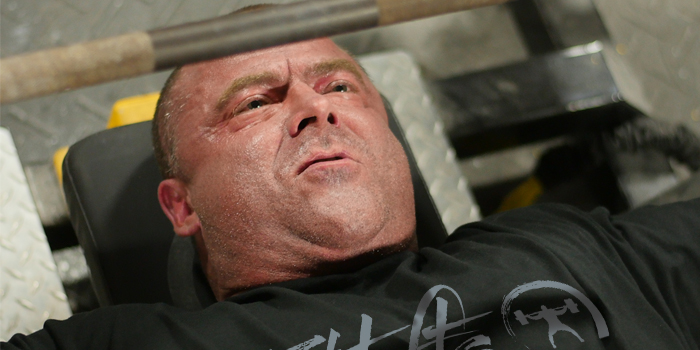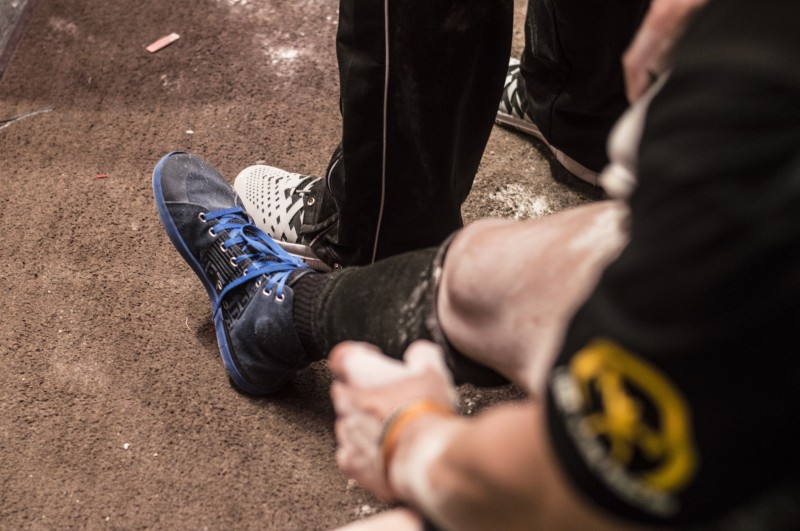
First of all I want to express that in no way do I condone or encourage the use of Performance Enhancing Drugs (PEDs) whatsoever. This article is simply an outlet to address the elephant in the room that we’re not supposed to talk about. I promise to try and be as politically correct as possible without crossing the line. To start I’ll quote powerlifting legend Louie Simmons who said, "Who am I to judge you and who are you to judge me?"
If you think athletes aren’t “supplementing” in almost every competitive sport whether amateur or professional, you’re allowing yourself to be very naïve. Almost every athlete, regardless of their sport is always looking for an edge to be just a little better than their competition. Whether it’s professional baseball, tennis, cycling or Olympic athletes, there’s been a significant history of repeated use or “abuse” of PED’s throughout competitive history. A history of embarrassment and “falls from grace” for many athletes that were once considered heroes to numerous fans, kids and upcoming athletes.
For many professional athletes there is a ton of pressure to perform, not just periodically, but consistently night after night, game after game, competition after competition. There are multi-million dollar contracts and endorsements on the line and for upcoming athletes, that is a heck of a carrot to dangle in front of your face. In professions such as football where your body is getting smashed, crushed, and pounded game after game, I can understand why some athletes would be tempted to take supplements that would help with the repair of torn, sprained, and injured muscles. Sometimes I ask myself, "what is worse, taking PED’s to help recover from injury or relying on addicting prescription narcotic medications to make it through the next game?"
PED’s really came to the forefront of public scrutiny when Canadian sprinter Ben Johnson won the gold medal in the 100-meter sprint in Seoul Korea in September 1988 when he ran 100 meters in 9.79 seconds. Johnson subsequently tested positive for stanozolol and was stripped of his medal. After the Ben Johnson incident, it sparked the Dubin Inquiry in Canada and the US Congress introduced the Controlled Substances Act even though the American Medical Association (AMA), Drug Enforcement Administration (DEA), Food and Drug Administration (FDA) and the National Institute on Drug Abuse (NIDA) argued and opposed making anabolic steroids controlled substances because they didn’t cause psychological or physical dependencies which was a key component for a “controlled substance."
Enter the baseball steroid scandal and controversy when Mark McGwire broke the home run record in 1998 with 70 home runs and Sammy Sosa was a close second hitting 66. McGwire later admitted to using anabolic steroids and growth hormone “on and off” for ten years. After his baseball career, Jose Canseco wrote a book called Juiced admitting to using steroids and growth hormone during his sixteen-year career and said most MLB players were taking the same things he was taking. Numerous MLB players like Sammy Sosa, Barry Bonds, and Rafael Palmeiro have been suspected of taking PED’s during their careers.
Lance Armstrong won seven consecutive Tour De France events from 1999 to 2005 after beating Stage III Testicular cancer, which had spread to his brain, lungs and abdomen. Armstrong was stripped of his titles after admitting to using blood transfusions, EPO, testosterone, and corticosteroids and was touted as the ringleader of the most sophisticated, professionalized, and successful doping program the cycling sport had ever experienced. Armstrong was banned for life from competing in any event governed by the World Anti-Doping Agency.
The list of professional wrestlers is pretty much synonymous with drug abuse for not only anabolic steroids but also prescription pain medications. Probably the most controversial wrestler immersed in the steroid storm was Chris Benoit who was two-time World Champion and World Heavyweight Champion in the WWE and won twenty-two titles over the length of his career. Benoit made the news when he murdered his wife and son on June 22, 2007 before hanging himself. There was plenty of controversy in the media speculating and blaming anabolic steroid abuse for his actions and behavior but research suggested that depression along with multiple concussions were likely contributing factors to Benoit’s actions.
WATCH: Table Talk — Do Some Training Programs Only Work If You Take Steroids?
Mixed Martial Arts has a long list of UFC fighters that have tested positive for a variety of anabolic steroids. Fighters on this list include Chael Sonnen, Anderson Silva, Sean Sherk, Ken Shamrock, Royce Gracie, Stephan Bonnar, Vito Belfort, and Thiago Alves.
This year professional 28-year-old tennis player Maria Sharapova, who is a five time Grand Slam and former Wimbleton champion, tested positive for the banned substance Meldonium at the Australian Open. Sharapova admitted to using this substance for several years before it was added to the banned substance list and was immediately suspended from playing and dismissed from the position of the UN Goodwill Ambassador, which she held since 2007.
The International Olympic Committee is the governing body that can rule when athletes are in violation of rules in the Olympic games. The IOC can strip athletes' Olympic honors and request the return of medals. You might suspect that the use of PED's is exclusive to strength, endurance, or fighting sports. You'd be wrong.
The truth is that athletes that compete in any sport have been testing positive for banned substances for years, including pentathlons, judo, cycling, swimming, weightlifting, wrestling, track and field, gymnastics, freestyle, alpine and cross country skiing, target shooting, heptathlons, and equestrian sports.
When so many athletes are using PED’s, there are obviously ways that team doctors, coaches and handlers can attempt to mask the use of specific banned substances. I watched a documentary that spoke with the lead physician for the International Olympic Committee, who reported that they keep athletes testing samples for future analysis and they are finding that as technology evolves and they retest samples that tested “negative” at the time of testing, are now finding other banned substances present in the samples that they weren’t able to test for at the time of testing. It’s a continuous cat and mouse game of trying to stay ahead of technology and testing methods to “beat the testing system.”
There are many different substances and compounds that are continuously being introduced into the circle of PED’s. Anabolic steroids are just the tip of the iceberg when it comes to performance enhancing. New stimulants, pro-hormones, peptides and other substances are continuously entering the equation. The next big thing that I suspect to enter the athlete world will be gene manipulation. Scientists can already alter genes that inhibit myostatin, which controls how much muscle a body can produce. Imagine an athlete that could have unlimited muscle growth.
The general public has been lead to believe that anabolic steroids are the anti-christ and want to demonize anyone who has anything to do with them. We’re all led to believe that if you use anabolics, it will kill you. Most anabolics were designed to treat medical conditions such as muscle wasting diseases, serious burns, and HIV. To these people, anabolics are life saving compounds that they rely on. But take them as an athlete? You’re going to die.
In present day society, doctors are preaching the use of testosterone to older men to make them feel more vibrant, healthy, and have a better sex drive. Are they good for you or are they bad for you? I guess it depends what you use them for.
As athletes, people want to perform to the best of their ability, win competitions, set records, and most will do whatever it takes to get to the next level. The general public has a small hand in this mindset of winning at all costs. The general sport fan wants to see athletes achieve the impossible: run faster than anyone has ever run, lift more weight than anyone has ever lifted, hit more home runs than anyone. Fans want to see feats of strength and athletic performances that are beyond ordinary. When athletes do what it takes to become beyond ordinary, the same fans are the first ones to cast stones and scream “cheater."
I for one am impressed with the fact that the sport of powerlifting is honest and recognize that a lot of their athletes use PED’s. Federations have "Pro Divisions" that are untested and aren’t frowned upon for using PED’s and also have “Amateur Divisions” that are tested for PED’s.
Personally, I believe that more sports should follow the lead of the Powerlifting Federations and have both Pro and Amateur divisions. Whether that’s right or not would be up for debate on both sides. Everyone has their opinion and everyone has their beliefs.
The issue of athletes using PED’s in ALL sports is something that is going to continue forever. There will always be people willing to take chances on using substances that will enhance their performance to get them to the next level. Right or wrong, it will always exist.













A decade old study showed how athletes actually think, but unfortunately the conclusions were wrong. Athletes want to transcend, to overcome, even at the cost of life. And the athlete's life belongs to one person, and only one: the athlete.
Congratulations for the article.